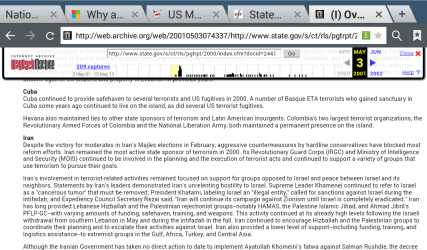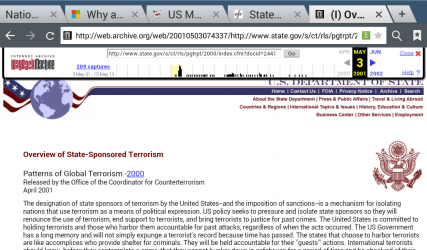USNavyVet
VIP Member
The embargo didn't work because we were the only country with an embargo still on Cuba. Cuba paid off 4 countries for what they stole but never gave US companies any of the money owed. They are a poor third world country that supports terrorism in the Western hemisphere. If you're ok with those facts then normalize relations with that piece of shit island.



